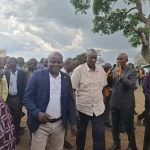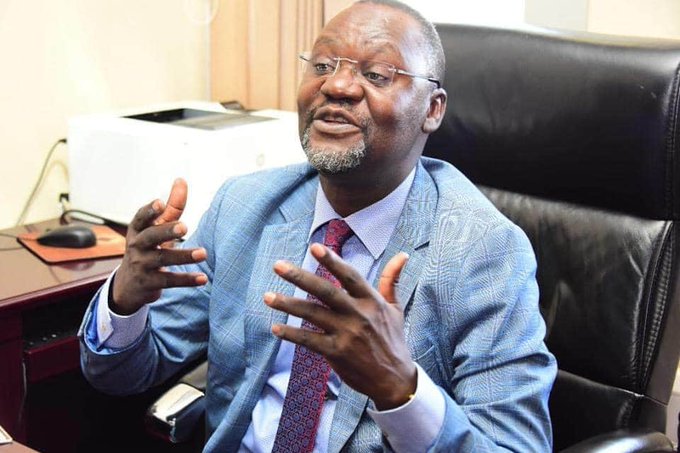In an uncommon yet crucial move, Erias Nalukoola has officially been sworn in as the Member of Parliament (MP) for Kawempe North, marking the end of the constituency’s prolonged period without parliamentary representation.
The ceremony, held in the chambers of Speaker Anita Among on Tuesday, bypassed the usual parliamentary protocols as the House remains in recess to address ministerial policy statements.
Speaker Anita Among pointed out the urgency of the swearing-in, stating that delaying the process would have left Kawempe North’s constituents without a voice in critical legislative discussions.
“We would not want to deprive the good people of Kawempe representation. The law compels us to act, and we have done so,” she affirmed.
Nalukoola’s induction grants him full membership in the 11th Parliament, entitling him to all parliamentary privileges, including a vehicle, fuel allowances, and participation in key debates.
The event was facilitated by Leader of the Opposition Joel Ssenyonyi, who formally presented Nalukoola. After taking the oath of allegiance to the Ugandan Constitution, Nalukoola concluded with the declaration, “So help me Allah,” reflecting his faith.
He was subsequently handed copies of the Constitution and parliamentary procedural rules—symbolic gestures emphasizing his mandate to uphold the law.
Nalukoola’s electoral journey culminated in a decisive victory, securing 17,980 votes in a by-election marked by logistical and political challenges. His swearing-in was attended by family members, including his father, as well as dignitaries such as Hajj Takuba and Anthony Asiimwe, Vice President of the Uganda Law Society.
In his inaugural address, Nalukoola highlighted the pressing issues facing Kawempe North, particularly devastating seasonal floods that have disrupted livelihoods.
“Our people have waited too long for representation. We must now address these emergencies with urgency,” he asserted.
Speaker Among acknowledged the constituency’s grievances, pledging parliamentary support for flood mitigation efforts. Meanwhile, Ssenyonyi tempered his approval of the ceremony’s outcome with caution, describing Kawempe North as a “battlefront” due to its contentious electoral history.
“While we would have preferred a formal parliamentary setting, we welcome this result. The struggle for effective representation continues,” he remarked.
The swearing-in closes a chapter of uncertainty for Kawempe North, ensuring its voice is now heard in Uganda’s legislative arena. As Nalukoola assumes his role, residents await tangible action on infrastructure, flood resilience, and socio-economic development—a testament to the weight of expectations riding on his tenure.
With Parliament set to resume sessions, Nalukoola’s immediate priorities will include advocating for emergency relief funds and engaging with national policymakers.
His ability to navigate parliamentary processes and deliver on campaign promises will be closely watched, not only by constituents but by a political landscape keen to gauge the Opposition’s influence in bridging grassroots needs with legislative action.




















